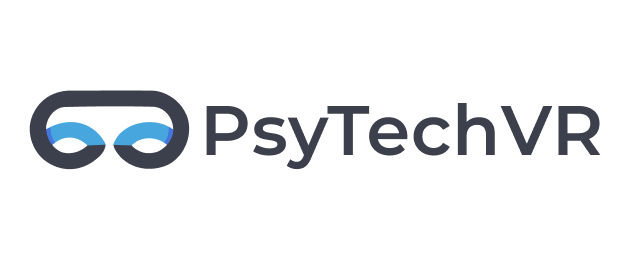Blog - VRET
Overcoming Nyctophobia: Fight Your Fear of Darkness
By Inna Maltzeva, Clinical Research Specialist
May 09, 2025
Being in the dark is a naturally uncomfortable feeling that can be traced as far back as the time our ancestors slept in the open, where predators roamed at night, and they had to stay awake and aware in order to survive. Thousands of years down the line, now that humans’ living conditions have significantly improved, the fear of darkness (nyctophobia) still remains a common issue in the world today. As a result of the fear of the possible dangers that can occur in the dark, we instinctively shift into a state of heightened awareness that keeps us on our toes whenever we are in a dark environment.
Nyctophobia is a very common and relatable type of fear, as almost everyone has experienced it at some point during their childhood and has grown to overcome or manage their anxiety during the dark. However, for some individuals, including adults, this fear of darkness persists and develops into an extreme form of anxiety that affects their everyday life. When left untackled, nyctophobia can result in harmful consequences, which include sleep disturbances, avoidance behaviors, and sudden panic attacks that can last for several minutes.
In this article, we will be taking an in-depth look at what nyctophobia is, its symptoms, triggers, and, more importantly, the various techniques and innovative treatment options that can be utilized to overcome it, particularly Virtual Reality Exposure Therapy. So, if you have been in search of a nyctophobia cure or you are just seeking more knowledge about this condition, this guide would arm you with all the information you need.
Nyctophobia is a very common and relatable type of fear, as almost everyone has experienced it at some point during their childhood and has grown to overcome or manage their anxiety during the dark. However, for some individuals, including adults, this fear of darkness persists and develops into an extreme form of anxiety that affects their everyday life. When left untackled, nyctophobia can result in harmful consequences, which include sleep disturbances, avoidance behaviors, and sudden panic attacks that can last for several minutes.
In this article, we will be taking an in-depth look at what nyctophobia is, its symptoms, triggers, and, more importantly, the various techniques and innovative treatment options that can be utilized to overcome it, particularly Virtual Reality Exposure Therapy. So, if you have been in search of a nyctophobia cure or you are just seeking more knowledge about this condition, this guide would arm you with all the information you need.

Defining Nyctophobia
The word “Nyctophobia’’ is a compound Greek word derived from the words ‘nyktos' and 'phobos', meaning 'night' and 'fear' respectively. It can be defined as an extreme or irrational fear of the dark. Nyctophobia can also be described as fear of what you can’t see in the dark, and this can be worsened by hearing noises in the dark without seeing the source of the noise. Individuals with nyctophobia are known to be terrified of being alone in the dark and may even find it difficult to fall asleep in a dark room.
To a certain degree, the fear of the dark is a common occurrence among younger children. It is typically considered to be a part of a normal child’s development, which is usually outgrown as they grow older. This fear can, however, persist in older children and adults as a phobia or anxiety, and it is sometimes also referred to as scotophobia or lygophobia.
To a certain degree, the fear of the dark is a common occurrence among younger children. It is typically considered to be a part of a normal child’s development, which is usually outgrown as they grow older. This fear can, however, persist in older children and adults as a phobia or anxiety, and it is sometimes also referred to as scotophobia or lygophobia.
Common Life Events That Trigger Fear of Darkness
Fear of darkness is a common occurrence that affects people of all ages. While it can be a phase of normal development in toddlers, it can be severe in adults, affecting their day-to-day lives and overall health. Nyctophobia can be triggered in individuals by the environment they grew up in, a past stressful or traumatic experience in the dark, psychological factors, and a combination of several other factors. Understanding the various factors responsible for this phobia is key to nyctophobia treatment. Let’s take a closer look at events that trigger nyctophobia!
Past Traumatic Events
Individuals who have experienced troubling events, especially in the dark, are susceptible to Nyctophobia. Memories of these traumatic events come to mind and trigger anxiety and fear whenever they are in dark rooms. Traumatic events such as: witnessing a break-in at night, being chased in the night, watching someone get hurt, or an intense storm that leads to a power outage at night.
Growing Up In Dark Or Scary Environments
When a child is constantly left alone in the dark and the child’s cries for help are neglected, this can contribute to a fear of darkness later in life. Bullying and constant abuse while growing up are also scary events implicated in Nyctophobia.
Exposure To Scary Media
Exposure to horror movies, books, and stories, especially at night, is a common trigger of Nyctophobia. The mind often replays frightening images or scenes, and when it’s too dark to see what’s around, fear of what is lurking in the dark overwhelms such individuals.
Anxiety
High levels of anxiety or stress can exacerbate fears in individuals, including fear of darkness. Individuals who have experienced separation anxiety in their childhood can easily get anxious about something bad happening to them when left alone in the dark.

How Nyctophobia Connects with Other Phobias and Mental Health Conditions
Nyctophobia, as earlier explained, is an irrational or excessive fear of darkness, and it is categorized as a specific phobia. Like any other specific phobia, fear of darkness must have persisted for at least 6 months and have a significant impact on the mental and physical well-being of the individual before a diagnosis can be made. Nyctophobia is a complex condition that intersects with other mental health conditions. Examples of these conditions include;
Post-traumatic Stress Disorder (PTSD)
PTSD and nyctophobia are connected as traumatic events or experiences in darkness can lead to fear of darkness.
Anxiety Disorders
Fear and anxiety are interrelated as intense fear of anything as the ability to develop into anxiety or exacerbate any underlying anxiety disorders. Fear or panic when nighttime is approaching is a major contributor to sleep anxiety and insomnia.
Depression
Fear of darkness in individuals will result in the avoidance of dark places and situations, which in turn limit and reduce social interaction. Reduced social interactions can lead to depression or aggravate symptoms of depression.
When the Lights Go Out: Recognizing Nyctophobia Symptoms
The first step to managing any condition effectively is to recognize its symptoms and ultimately make an accurate diagnosis. When the lights go out, the reactions that accompany darkness are pointers to the presence or absence of nyctophobia. Almost everyone feels uncomfortable or uneasy when lights go out, but nyctophobia, however, is much more than a casual uneasiness in the dark. It is a serious condition that reduces the overall quality of life of individuals affected, with its symptoms persisting for an extended period of time. The symptoms of nyctophobia can be categorized as physical or emotional. Let’s take a closer look at examples of some of these symptoms.
Emotional and Physical Signs You Might Be Afraid of the Dark
Individuals with nyctophobia present with emotional signs such as;
Avoidance
Individuals with nyctophobia tend to avoid situations and places that have to do with being in the dark. Situations such as night travelling, entering dark or dimly lit rooms, or sleeping in the dark.
Anxiety
This refers to an overwhelming feeling of fear and worry that creeps in when the sun is setting or when in dark spaces.
Panic Attacks
This is very common in severe cases of nyctophobia. People with a fear of darkness suddenly get overwhelmed and frightened when they find themselves in a dark environment.
Insomnia
People with a fear of darkness find falling asleep at night difficult. They need to have lights on before they can fall asleep and may find it difficult to stay asleep.
Increased sensitivity to noises
When the lights are out, sounds and noises seem to get louder and frightening for people with nyctophobia. They get frightened easily and assume that danger is lurking with every creak in the door.
Intrusive Thoughts
People with nyctophobia are known to cultivate distressing thoughts related to darkness or nighttime. This includes thoughts of danger, imaginary threats, or thoughts of being attacked, which dominate the mind immediately they find themselves in a dark environment.
Social Withdrawal Or Isolation
People with nyctophobia often find it irritable and embarrassing to discuss their fears and tend to keep to themselves.
Over-reliance On Sources Of Light
Fear of darkness makes people with the condition always depend on sources of light to feel safe.
The physical signs of Fear of darkness include the following;
The physical signs of Fear of darkness include the following;
- Increased heart rate or palpitations as a result of anxiety and fear
- Shortness of breath
- Non-cardiac chest pain
- Dizziness or feeling of faintness
- Trembling
- Nausea or stomach upset
- Increased Perspiration
- Headaches

How Fear of Darkness Influences Everyday Behavior
Nyctophobia not only impacts the ability of an individual to stay in dark places, but it also influences their day-to-day life, including their productivity and social interactions. In this section, we will highlight the influence of fear of darkness on the everyday behavior of those it affects and the need for prompt treatment.
Impact On Social Relationships
People with nyctophobia often miss out on important social gatherings that involve darkness, such as going to a movie theatre or date nights. This causes a strain on important personal relationships, results in social isolation at night, and impacts normal daily routines. In severe cases of nyctophobia, individuals affected by it can also withdraw from friends, family, and social functions out of shame and fear.
Avoidance Behaviors
Nyctophobia in people affected by it results in avoiding leaving the house after dark or engaging in any activities at night.
Fatigue And Lack Of Productivity
Fear of darkness makes it difficult for individuals to fall asleep at night, which often leads to insomnia or disrupted sleep patterns. As a result of this, people with nyctophobia are often fatigued during the day, unable to focus, and unproductive.
Difficulty Concentrating
Nyctophobia and the constant anxiety associated with it make it difficult to concentrate on tasks and activities during the day. Individuals are often distracted by their concerns and worries about the dark.

Early Clues That Nyctophobia Might Be Developing
The symptoms of fear of darkness can be mild in some individuals and very severe in others. It is very important to recognize the signs of nyctophobia early enough to help manage the fear early before it escalates and becomes very severe. The early signs of nyctophobia include;
- Bedtime Difficulties: People with nyctophobia start out with refusing to go to bed at night or a persistent need to turn on the lights at night.
- Clinging: People with a fear of darkness tend to cling to others for support and reassurance. Oftentimes, they do not want to be left alone, especially at night. They also hold on to familiar objects in a dimly lit or dark room for support.
- Avoidance: They begin to avoid dark places and situations that make them go out at night.
- Anxiety and worry: People with a fear of darkness become anxious at the thought of darkness. They also verbally express their fear and worries about dark rooms at an early stage.
- Physical symptoms of panic attacks, such as increased heart rate, sweating, difficulty in breathing, dizziness, etc, can manifest when placed in dark rooms or thought of darkness.
From Shadows to Solutions: Nyctophobia Treatment Paths
From the effects, there is no doubt that nyctophobia casts a major shadow on the lives of people affected by it, reducing their overall quality of life. The good news, however, is that having the fear of darkness is not at all a hopeless situation, as there are treatment options that can be used to overcome nyctophobia.
The main objective of nyctophobia treatment is to challenge and understand the fearful thoughts and beliefs about the dark. This successful achievement of this goal consequently reduces the symptoms that arise as a result of the fear and helps those affected to gradually overcome their fear.
With the right treatment path, it is possible for individuals to get over their fear of darkness and live a more confident and fulfilled life. Individuals who have been able to get access to the right Nyctophobia treatment plan have also found that they sleep better and are gradually being relieved of anxiety and stress.
The treatment paths for nyctophobia usually involve a combination of several techniques to help individuals overcome their fear. These include: cognitive behavioral therapy (CBT), mindfulness practices, exposure therapy, virtual reality therapy, supportive group therapy, and relaxation therapy.
As we continue in this article, we will be reviewing the different therapies for nyctophobia in detail.
The main objective of nyctophobia treatment is to challenge and understand the fearful thoughts and beliefs about the dark. This successful achievement of this goal consequently reduces the symptoms that arise as a result of the fear and helps those affected to gradually overcome their fear.
With the right treatment path, it is possible for individuals to get over their fear of darkness and live a more confident and fulfilled life. Individuals who have been able to get access to the right Nyctophobia treatment plan have also found that they sleep better and are gradually being relieved of anxiety and stress.
The treatment paths for nyctophobia usually involve a combination of several techniques to help individuals overcome their fear. These include: cognitive behavioral therapy (CBT), mindfulness practices, exposure therapy, virtual reality therapy, supportive group therapy, and relaxation therapy.
As we continue in this article, we will be reviewing the different therapies for nyctophobia in detail.
What Therapy for Nyctophobia Looks Like Today
Therapy for Nyctophobia has evolved over time and has become more effective in helping individuals face their fear of darkness, overcome it, and live a more productive life. Nyctophobia cure in today’s world involves one or a combination of the following therapies;

Cognitive Behavioral Therapy (CBT)
This therapy helps individuals to be more aware of their feelings and thoughts. It most importantly helps them identify negative thought patterns that are related to their fear of darkness. It could be the fears of an unknown danger in the dark. Once this is identified, the next step would be to challenge those thoughts and replace them with positive and realistic thoughts. That’s not all, cognitive behavioral therapy also teaches coping strategies such as deep breathing and relaxation techniques to help individuals when they are faced with anxiety or panic attacks in dark places. CBT is usually used in conjunction with exposure therapy to gradually make them less sensitive to darkness.
Exposure Therapy
This therapy involves exposing an individual with nyctophobia gradually to darkness. The goal of exposure therapy is to gradually make people with a fear of darkness less sensitive or reactive to dark places until they become comfortable. It is advised to start the exposure with a small duration, like 10 minutes, and increase it steadily as they become more comfortable.
Virtual Reality (VR) Therapy
Virtual Reality therapy makes use of the principle of exposure therapy in nyctophobia treatment. It exposes individuals with a fear of darkness to dark environments in a controlled and safe way. VR therapy utilizes virtual technology to create simulated dark environments. It creates an immersive experience of a dark or dimly lit room that can be controlled both in the intensity of the darkness and duration of the therapy. This helps in gradually desensitizing people with nyctophobia and making them more comfortable with dark rooms.
Mindfulness Practices
The core principle of this therapy is awareness and acceptance. It helps individuals to become more aware of their thoughts and feelings in the present moment. Additionally, mindfulness practices help in treating this specific phobia by making individuals accept their feelings of fear and anxiety in the dark without being judgmental.
With the help of mindfulness exercises such as yoga, deep breathing, and relaxation exercises, individuals with nyctophobia are able to slow down their thoughts, achieve a sense of calmness, reduce anxiety when faced with darkness, and improve sleep.
With the help of mindfulness exercises such as yoga, deep breathing, and relaxation exercises, individuals with nyctophobia are able to slow down their thoughts, achieve a sense of calmness, reduce anxiety when faced with darkness, and improve sleep.
Other treatment approach that helps in overcoming nyctophobia include;
- Supportive group therapy: Joining groups with other people affected by fear of darkness has proved to be very effective with nyctophobia treatment. This helps such individuals to feel seen and not alone. The peer support received in such groups also provides the courage needed for individuals to face their fear of the darkness.
- Family therapy: The negative impact of nyctophobia is strong enough to disrupt family dynamics, and as such, it is essential to help everyone in the family understand the phobia. This therapy also encourages the family to develop coping strategies to help and provide support to the person.
- Lifestyle Modifications: Making necessary adjustments to one’s lifestyle can be very effective in nyctophobia treatment. Adjustments such as creating a comfortable environment for sleeping, avoiding watching or reading scary movies or books, especially before bedtime, can be very helpful in managing nyctophobia.

How Exposure Therapy Helps with Fear of Darkness
Exposure therapy is a very important component in the treatment of nyctophobia, and it has been found in a study to be 80-90% effective in the treatment of specific phobias. Exposure therapy is a systematic and gradual approach of exposing individuals to what they are scared of, and in this case, darkness. What this therapy does to the fear of darkness is that it gradually desensitizes individuals with this phobia to the stimulus (which is darkness in this case).
Usually, exposure therapy is used in conjunction with Cognitive Behavioral Therapy to treat nyctophobia, such that individuals with nyctophobia are not only exposed to darkness gradually, but they are also taught how to manage their thoughts, anxieties, and actions in the dark. How exactly does exposure therapy help with fear of darkness?
Let’s take a closer look!
Usually, exposure therapy is used in conjunction with Cognitive Behavioral Therapy to treat nyctophobia, such that individuals with nyctophobia are not only exposed to darkness gradually, but they are also taught how to manage their thoughts, anxieties, and actions in the dark. How exactly does exposure therapy help with fear of darkness?
Let’s take a closer look!
How does exposure therapy work?
- In utilizing exposure therapy, you need to first identify the specific concerns and anxieties the individual has about darkness.
- What’s next is to come up with situations related to darkness that can trigger the anxieties in order of the least distressing concern to the most distressing one.
- Then introduce the person to a dimly lit room and gradually increase the intensity of darkness and situations till they become comfortable and desensitized to dark spaces.
- After each exposure, ensure there is room for reflection on their feelings, thoughts, and actions during the session. This will allow them to solidify the coping and relaxation techniques they have learnt.
There are three techniques used in exposing people with nyctophobia to darkness in a controlled environment, and they include;
- Imaginal Exposure: The individual is exposed to a dark environment with the help of their imagination. A therapist guides them in visualizing scenarios involving darkness and allows them to practice coping strategies in a safe environment.
- In vivo exposure: This exposure technique involves individuals with a fear of darkness facing their fears in real life.
- Virtual Reality Exposure: This exposure technique makes use of the virtual reality technique to simulate a dark environment in a controlled setting.
Benefits of exposure therapy
- Exposure therapy helps individuals with nyctophobia boost their self-confidence and esteem.
- It is useful in managing anxiety related to dark rooms and helps individuals be in better control of their emotions.
- The overall quality of life and day-to-day function of individuals with nyctophobia is greatly improved with exposure therapy.
- Exposure therapy teaches and reinforces coping strategies that are useful in overcoming nyctophobia.

What to Expect During Nyctophobia Therapy
One of the first things to expect, where nyctophobia treatment is concerned, is a multi-therapy approach. This implies that several therapies, such as cognitive behavioral therapy, exposure therapy, and mindfulness therapy, are used simultaneously to achieve the desired goals and objectives in nyctophobia therapy. Below is an outline of things to expect during a nyctophobia therapy.
- Initial Assessment: The initial assessment involves a discussion where the therapist gets to assess and determine the specific fears and anxieties the individual has associated with the dark. At this initial assessment, the root cause of nyctophobia and the impact it has had on the person’s life are examined. The therapist will also work with the individual to identify the specific triggers that increase the fear of darkness. It is expected that at this stage, the individual discusses their experience and expectations in detail with their therapist, and together they set objectives for the treatment plan.
- Utilization Of Therapies: When the initial assessment is done, the next thing to expect in nyctophobia treatment is the utilization of therapeutic approaches which include: cognitive behavioral therapy and exposure therapy.
- Relaxation Practices: In nyctophobia therapy, it is expected that the therapist teaches several relaxation techniques like meditation, yoga, and deep breathing exercises to help individuals with a fear of darkness overcome and manage their anxieties.
- Emotional Discomfort: Nyctophobia treatment can be emotionally demanding. This is a result of the initial anxiety and discomfort experienced as you are exposed to darkness gradually.
- Progress tracking and Adjustment: Here, the therapist tracks the progress of the individual and adjusts the exposure to darkness as required. The goal of this procedure is to try to get the individual comfortable with dark places gradually.
- Expect support and guidance during nyctophobia treatment from both family, loved ones, and the therapist.
How to Choose a Therapist for Nyctophobia Support
The choice of a therapist for nyctophobia treatment is not only important in the outcome of the therapy, but also very crucial in influencing how comfortable the therapy sessions will be. A therapist sets the tone of the treatment plan, explains and selects the most suitable treatment plans for you, and as such, this is not a decision that should be made without careful consideration.
Not to worry, in this section we will go through all you need to know and consider in order to choose the perfect therapist to hold your hand and support you in overcoming nyctophobia.
Not to worry, in this section we will go through all you need to know and consider in order to choose the perfect therapist to hold your hand and support you in overcoming nyctophobia.
Tips to consider when choosing a therapist.
- Expertise: You want to be certain that the therapist is experienced and licensed in treating specific phobias. It is also important that the therapist is familiar with techniques such as cognitive behavioral therapy, exposure therapy, and mindfulness practices. This is because these are the core therapies used in nyctophobia cure. An experienced therapist is a no-brainer when it comes to overcoming nyctophobia.
- Talk to your primary healthcare provider: If you are unsure where to start in searching for a therapist, this is a great place to start. Your primary healthcare provider will assess your symptoms and give you a referral to a specialist in specific phobia treatment. That’s not all, they will also walk you through the different therapies available, such that you know what to expect when you meet a therapist.
- A Test Session: Book an initial session before you decide to go with a therapist. You are trying to make sure that you are comfortable with the therapist, and you can build a great rapport with the person. At this test session, you also want to pay attention to any red flags, such as a lack of empathy or discomfort. This session is also an opportunity to ask questions about the plan and approach of treatment, payment plans, duration of therapy, and be sure it aligns with your needs and person. Booking a test session is a very crucial tip when choosing a therapist, as it gives you a clue of what you should expect when you eventually sign on. You do not want to skip this tip.
- Communication skills: This is non-negotiable! For the nyctophobia therapy session to be successful, the communication style of your therapist must sit well with you. The therapist should listen actively and communicate effectively. You can determine this during the initial session and also take reviews from past clients.
- Compassionate and supportive: The crux of seeking out a therapist is professional support. When choosing a therapist, ensure they are kind, supportive, and empathetic. You do not want to go with a therapist who does not seem present or thinks you are overreacting, you need someone who will walk with you every step of the way till you overcome the fear.
- Reviews: Read reviews about the therapist online before choosing them. The experience of other clients is a great pointer to the kind of therapist they are and how much support and help they can provide.
- Logistics: This is a very important factor to consider before choosing a therapist. You need to be sure they are not too far from where you are staying so that you can be consistent with your sessions. Check if online sessions are available if you would love to hold sessions virtually.
Calming the Mind: Self-Guided Tools to Overcome Fear of Darkness
Having discussed the effects of nyctophobia in this article, it is clear that this condition, once confirmed, requires immediate intervention. However, the journey to overcoming nyctophobia does not necessarily have to start at a therapist’s office. Several practical self-guided strategies can be incorporated into your daily routine to gradually help reduce the anxiety that comes along with the dark.
It’s important to understand that these are not just coping mechanisms; rather, they are effective methods that have been proven to help reframe the mind’s relationship with darkness. Let’s go over some of them together.
It’s important to understand that these are not just coping mechanisms; rather, they are effective methods that have been proven to help reframe the mind’s relationship with darkness. Let’s go over some of them together.
Breathing and Grounding Techniques for Nighttime Anxiety
When anxiety starts to creep in, especially at night, one of the immediate ways to calm both your body and mind is by practicing breathing and grounding exercises. These practices help to almost immediately shift the body out of a panic state into a more relaxed and balanced mode.
Take the box breathing technique for example. This technique involves inhaling for 4 seconds, holding for 4 seconds, exhaling for 4 seconds, and then pausing for another 4 seconds before repeating the exercise. This simple rhythm slows your heart rate and signals to your brain that you are safe, making the exercise very useful, especially during moments of panic in dark environments.
Take the box breathing technique for example. This technique involves inhaling for 4 seconds, holding for 4 seconds, exhaling for 4 seconds, and then pausing for another 4 seconds before repeating the exercise. This simple rhythm slows your heart rate and signals to your brain that you are safe, making the exercise very useful, especially during moments of panic in dark environments.

Another breathing technique is the diaphragmatic breathing, which is also called belly breathing. It is practiced by breathing deeper into the abdomen (belly) rather than just breathing shallowly into the chest. Research has shown that practicing this technique while lying in bed can help to ease night-time restlessness and also reduce the physiological symptoms that are normally associated with nyctophobia, such as shortness of breath or heart racing.
There is also the 5-4-3-2-1 grounding technique, which helps to center your focus on reorienting your awareness to the present moment. In this technique, you have to name 5 things you can see, 4 things you can touch, 3 things you can hear, 2 things you can smell, and 1 thing you can taste. This exercise helps you begin to shift your attention away from the imagined fear in your mind and onto the tangible experiences, breaking the mental loop that fuels anxiety. Additionally, you can physically ground yourself by pressing your feet into the floor or grabbing a textured object to help bring yourself out of your head and into your body.
There is also the 5-4-3-2-1 grounding technique, which helps to center your focus on reorienting your awareness to the present moment. In this technique, you have to name 5 things you can see, 4 things you can touch, 3 things you can hear, 2 things you can smell, and 1 thing you can taste. This exercise helps you begin to shift your attention away from the imagined fear in your mind and onto the tangible experiences, breaking the mental loop that fuels anxiety. Additionally, you can physically ground yourself by pressing your feet into the floor or grabbing a textured object to help bring yourself out of your head and into your body.

Using Mindfulness to Ease Nyctophobia
Mindfulness is another powerful practice that can help in overcoming nyctophobia. It involves the practice of paying attention to the present moment, cultivating one’s thoughts, feelings, and emotions without any judgment or distraction.
One of the most important benefits of nyctophobia is how it breaks the mental cycle that often fuels one’s fear of darkness. Instead of imagining the possibilities of dangerous things that might be hiding in the dark, mindfulness helps to gently shift your focus to what is actually happening in the present. A good example of mindfulness is learning to observe your bodily responses (i.e, quickened heartbeat, tense muscles, and shallow breath) instead of automatically reacting with fear when in a dark environment.
You could also practice mindfulness at night by simply sitting quietly in a room and focusing on your breathing. In instances where your mind wanders to fearful thoughts, gently guide your mind back to your breathing or to the feeling of your body being supported by the chair, bed, or floor.
Additionally, you could practice mindfulness in the form of guided meditations. This form of mindfulness involves you walking/going through a calm and relaxing scenario or body scan, which fosters a deeper sense of presence. VR apps like PsyTechVR help to provide guided meditation recordings and several resources that can be tailored to meet the experience you need to overcome anxiety while in a dark environment.
One of the most important benefits of nyctophobia is how it breaks the mental cycle that often fuels one’s fear of darkness. Instead of imagining the possibilities of dangerous things that might be hiding in the dark, mindfulness helps to gently shift your focus to what is actually happening in the present. A good example of mindfulness is learning to observe your bodily responses (i.e, quickened heartbeat, tense muscles, and shallow breath) instead of automatically reacting with fear when in a dark environment.
You could also practice mindfulness at night by simply sitting quietly in a room and focusing on your breathing. In instances where your mind wanders to fearful thoughts, gently guide your mind back to your breathing or to the feeling of your body being supported by the chair, bed, or floor.
Additionally, you could practice mindfulness in the form of guided meditations. This form of mindfulness involves you walking/going through a calm and relaxing scenario or body scan, which fosters a deeper sense of presence. VR apps like PsyTechVR help to provide guided meditation recordings and several resources that can be tailored to meet the experience you need to overcome anxiety while in a dark environment.
The Power of Visualization in Managing Fear
Visualization is an effective mental training tool that helps to gradually reduce fear responses, especially with individuals who are battling with nyctophobia. Research has shown that visualization activates similar neural pathways as real-life experiences, and as a result, the brain cannot fully distinguish between real and imagined experiences. This means that by mentally picturing calm and safe experiences in dark environments, individuals can begin to reconfigure their emotional reactions to darkness.
A good example would be to imagine lying peacefully in a dark room, feeling relaxed and secure. As you continually visualize this scenario, your brain begins to associate darkness with calm rather than danger. This mental practice helps to train your nervous system to respond/ react more gently when you are in an actual dark environment. This form of visualization is called future visualization.
Another visualization technique that is worthy of note is the paired deep breathing with calming imagery. This process involves picturing a soothing scenario when inhaling and releasing your fear and tension into the air when exhaling. Again, the continuous repetition of this exercise can help to create a strong mental link between darkness and peace.
A good example would be to imagine lying peacefully in a dark room, feeling relaxed and secure. As you continually visualize this scenario, your brain begins to associate darkness with calm rather than danger. This mental practice helps to train your nervous system to respond/ react more gently when you are in an actual dark environment. This form of visualization is called future visualization.
Another visualization technique that is worthy of note is the paired deep breathing with calming imagery. This process involves picturing a soothing scenario when inhaling and releasing your fear and tension into the air when exhaling. Again, the continuous repetition of this exercise can help to create a strong mental link between darkness and peace.
How Support Systems Can Help With Nyctophobia Recovery
One of the most underestimated yet powerful tools in overcoming nyctophobia is to have a strong and understanding support system. This could be your family, friends, dedicated mental health professionals, or even support groups. Having the right set of people around helps to provide emotional support, accountability, and practical help that makes a real difference on the journey to full remission.
Several people with nyctophobia refrain from seeking help from others, mainly because they feel embarrassed or ashamed. This occurs especially with adults who believe that the fear of darkness should have been left behind in childhood. The truth, however, is that fear does not follow a particular timeline, and there are several adults who are quietly living with this condition. In fact, opening up to someone you trust is often the first step in shedding the shame you feel and validating your experience.
Additionally, involving someone else in your progress helps to create accountability, which is especially beneficial when you intend to stay committed to self-guided strategies such as breathing exercises, mindfulness, or visualization. When someone else knows about your goals, you are more likely to stay consistent and follow through with your plans.
In cases where personal relationships are not enough or feel limited, you can also take advantage of support groups. These spaces provide a unique edge, which is mainly the presence of people who understand what you are experiencing and can offer encouragement or practical insights that help them overcome their fear of darkness (nyctophobia).
It is worth of note to include that the right network of people does not just help during the moments of fear during the night, they are also available to celebrate your progress and journey towards overcoming nyctophobia. This emotional support helps to fuel motivation and boost your self-esteem, both of which are important for long-term recovery.
Several people with nyctophobia refrain from seeking help from others, mainly because they feel embarrassed or ashamed. This occurs especially with adults who believe that the fear of darkness should have been left behind in childhood. The truth, however, is that fear does not follow a particular timeline, and there are several adults who are quietly living with this condition. In fact, opening up to someone you trust is often the first step in shedding the shame you feel and validating your experience.
Additionally, involving someone else in your progress helps to create accountability, which is especially beneficial when you intend to stay committed to self-guided strategies such as breathing exercises, mindfulness, or visualization. When someone else knows about your goals, you are more likely to stay consistent and follow through with your plans.
In cases where personal relationships are not enough or feel limited, you can also take advantage of support groups. These spaces provide a unique edge, which is mainly the presence of people who understand what you are experiencing and can offer encouragement or practical insights that help them overcome their fear of darkness (nyctophobia).
It is worth of note to include that the right network of people does not just help during the moments of fear during the night, they are also available to celebrate your progress and journey towards overcoming nyctophobia. This emotional support helps to fuel motivation and boost your self-esteem, both of which are important for long-term recovery.

High-Tech Healing: VR as a Nyctophobia Treatment
The current advancements in technology have completely revolutionized the way we treat mental health issues, creating better chances of recovery for individuals with phobias such as nyctophobia. While the traditional methods are effective, they can sometimes feel slow or overwhelming, especially for individuals with deeply-rooted fears. However, with the advent of an innovative solution like Virtual Reality Exposure Therapy (VRET), there is a possibility of confronting and overcoming these fears in an engaging and efficient way. Let’s go over how VR is being used to overcome nyctophobia.
Why Exposure Therapy Through VR Is Changing the Game
Exposure therapy has always been renowned for being an effective treatment for phobias, including nyctophobia. It works by gradually helping individuals with specific phobias to face their fears in a safe and controlled space. The application of virtual reality has, however, advanced this approach to a new level by providing immersive, real-time simulations that allow individuals to confront their fears in a very engaging and realistic way.
VR helps to create a computerized environment where individuals with nyctophobia can practically experience different levels of darkness, all while remaining completely safe and supported. This way, the intensity of the generated environments can be controlled and set to start from a softer, dimly lit environment and then slowly progress toward darker and more realistic settings. Over time, this gradual exposure helps to reprogram the brain’s response to fear, actively reducing anxiety and building confidence.
VR helps to create a computerized environment where individuals with nyctophobia can practically experience different levels of darkness, all while remaining completely safe and supported. This way, the intensity of the generated environments can be controlled and set to start from a softer, dimly lit environment and then slowly progress toward darker and more realistic settings. Over time, this gradual exposure helps to reprogram the brain’s response to fear, actively reducing anxiety and building confidence.

Features Of VRET In Treating Phobias
Immersive and Realistic Experience
Unlike traditional exposure therapy, where the subject has to imagine dark environments or rely on guided descriptions, VRET provides a highly immersive experience where the subject feels like they are truly in the environment. This realistic experience helps to make the treatment method more effective.
Removes Barriers To Real World Exposure
Traditional exposure therapy generally requires that you confront your fears in real-life situations, and this can be, at times, distressing and impractical, especially for individuals with phobias like nyctophobia. VR removes this limitation by opening the possibility of exposure therapy occurring without the need to step into an actual dark room. With VR, individuals with a fear of darkness can face their fears in the comfort of their home or their therapist’s office.
Real-time Monitoring And Feedback
VR makes it possible for therapists to easily observe their patients’ reactions to their fear in real-time, and adjust the exposure as needed. It also provides biofeedback technology, which can be integrated into the VR system to track physiological responses such as heart rate and breathing patterns. This data helps to provide the patients with actionable feedback, which they can use to adjust the VR sessions, making it more precise and effective.
Engagement and Motivation
VR provides a more engaging and interactive therapeutic experience than traditional methods. The nature of the VRET experience transforms what is a normal routine into.
What feels like a game or adventure can improve the user’s motivation and willingness to use the treatment.
Unlike traditional exposure therapy, where the subject has to imagine dark environments or rely on guided descriptions, VRET provides a highly immersive experience where the subject feels like they are truly in the environment. This realistic experience helps to make the treatment method more effective.
Removes Barriers To Real World Exposure
Traditional exposure therapy generally requires that you confront your fears in real-life situations, and this can be, at times, distressing and impractical, especially for individuals with phobias like nyctophobia. VR removes this limitation by opening the possibility of exposure therapy occurring without the need to step into an actual dark room. With VR, individuals with a fear of darkness can face their fears in the comfort of their home or their therapist’s office.
Real-time Monitoring And Feedback
VR makes it possible for therapists to easily observe their patients’ reactions to their fear in real-time, and adjust the exposure as needed. It also provides biofeedback technology, which can be integrated into the VR system to track physiological responses such as heart rate and breathing patterns. This data helps to provide the patients with actionable feedback, which they can use to adjust the VR sessions, making it more precise and effective.
Engagement and Motivation
VR provides a more engaging and interactive therapeutic experience than traditional methods. The nature of the VRET experience transforms what is a normal routine into.
What feels like a game or adventure can improve the user’s motivation and willingness to use the treatment.

How PsyTechVR Makes Overcoming Nyctophobia Easier
PsyTechVR is a leading VR platform that approaches the treatment of nyctophobia by effectively blending therapeutic expertise with immersive VR technology. In contrast to the traditional methods that solely depend on the therapist’s guidance in a clinical environment, PsyTechVR helps therapists to bring exposure therapy to the comfort and safety of the subject’s space.
The platform has several customizable and controlled virtual scenarios that replicate dark environments. This way, therapists can adjust the level of darkness and remove or include specific triggers ( i.e, shadows, silence, or isolations) based on their patient's needs, creating an exposure ladder that adequately meets their comfort and readiness level over time. This feature helps to reduce the intensity of the fear response of a nyctophobic individual, making each VR session with PsyTechVR more manageable than the last.
PsyTechVR also allows the use of gamification to transform the therapeutic process into an engaging, goal-oriented experience. The platform achieved this by incorporating game-like elements such as levels, rewards, and challenges, which makes the whole therapeutic experience feel less clinical and more interactive.
Additionally, PsyTechVR seamlessly integrates helpful tools like guided breathing exercises, mindfulness prompts, and relaxation sessions within the VR experience. These tools not only prove useful in emotional regulation, but they also help to teach users coping techniques that can be applied in the actual world.
Furthermore, PsyTechVR has a sophisticated progress tracking system that increases the motivation levels of clients with nyctophobia. This system makes it possible for the platform to monitor key data points such as session duration, levels completed, user-reported anxiety ratings, and breathing stability. The data is translated into simple graphs and milestones, which allows both patients and therapists to observe improvements over time.
Ultimately, PsyTechVR removes several of the traditional limitations to the treatment of nyctophobia, such as stigma and access to a therapist, by providing a self-paced and clinically informed experience.
The platform has several customizable and controlled virtual scenarios that replicate dark environments. This way, therapists can adjust the level of darkness and remove or include specific triggers ( i.e, shadows, silence, or isolations) based on their patient's needs, creating an exposure ladder that adequately meets their comfort and readiness level over time. This feature helps to reduce the intensity of the fear response of a nyctophobic individual, making each VR session with PsyTechVR more manageable than the last.
PsyTechVR also allows the use of gamification to transform the therapeutic process into an engaging, goal-oriented experience. The platform achieved this by incorporating game-like elements such as levels, rewards, and challenges, which makes the whole therapeutic experience feel less clinical and more interactive.
Additionally, PsyTechVR seamlessly integrates helpful tools like guided breathing exercises, mindfulness prompts, and relaxation sessions within the VR experience. These tools not only prove useful in emotional regulation, but they also help to teach users coping techniques that can be applied in the actual world.
Furthermore, PsyTechVR has a sophisticated progress tracking system that increases the motivation levels of clients with nyctophobia. This system makes it possible for the platform to monitor key data points such as session duration, levels completed, user-reported anxiety ratings, and breathing stability. The data is translated into simple graphs and milestones, which allows both patients and therapists to observe improvements over time.
Ultimately, PsyTechVR removes several of the traditional limitations to the treatment of nyctophobia, such as stigma and access to a therapist, by providing a self-paced and clinically informed experience.

VR and Anxiety disorders
Frequently Asked Questions
About Nyctophobia and Therapy
Can nyctophobia develop in adults even if they weren’t scared as children?
Nyctophobia (fear of darkness) in most cases is often associated with children and considered to be a part of childhood experience. However, adults who weren’t scared of the dark as children can also develop nyctophobia due to various reasons, such as break-ins, assaults, or any other traumatic occurrence associated with darkness. It is important for adults affected by this condition to understand their symptoms, as it could present itself in a different way from that of young children. Understanding these symptoms would help adults take the necessary steps towards recovering and improving their quality of life.
Is there a permanent cure for nyctophobia, or does it require ongoing management?
Like a lot of other phobias, nyctophobia can be successfully controlled and even eliminated when it is combated early and with the right strategies. This includes the use of cognitive behavioral therapy, relaxation techniques, and, more recently, virtual reality-based therapy. These treatment methods help to retrain an affected individual’s response when in a dark environment, and gradually, the fear is replaced with a sense of calm and control.
It is crucial to note that nyctophobia treatment results vary from person to person. Some others may enjoy full remission following treatment, while some may require continuous treatment to sustain their recovery progress.
It is crucial to note that nyctophobia treatment results vary from person to person. Some others may enjoy full remission following treatment, while some may require continuous treatment to sustain their recovery progress.
Do I have to sit in total darkness during exposure therapy for nyctophobia?
Not at all! Exposure therapy is a tool used for the treatment of nyctophobia that has proven to be very effective over the years, and it involves a gradual process. You are not expected to sit in total darkness during exposure therapy for nyctophobia – at least not right away.
The process typically starts with a mild exposure, such as dimming the lights slightly or viewing images of dark environments. Over time, as your confidence increases, the exposure may gradually progress towards darker settings. Some therapists even make use of low levels of VR exposure to simulate darkness in a safe and guided way.
The goal of this gradual process is to build tolerance and reduce the subject’s anxiety, not to force him/her into distress, which is the most likely result of sitting in total darkness right from the get-go.
The process typically starts with a mild exposure, such as dimming the lights slightly or viewing images of dark environments. Over time, as your confidence increases, the exposure may gradually progress towards darker settings. Some therapists even make use of low levels of VR exposure to simulate darkness in a safe and guided way.
The goal of this gradual process is to build tolerance and reduce the subject’s anxiety, not to force him/her into distress, which is the most likely result of sitting in total darkness right from the get-go.
What are the best ways to manage nyctophobia in unfamiliar places like hotels or campsites?
Managing Nyctophobia can be quite challenging and hard to keep up with, but with the right strategy, an individual can manage Nyctophobia, even in an unfamiliar environment. A great tip for managing this condition is to research the location and familiarize oneself with the layout. You can bring along comfort items such as a teddy bear for infants or whatever you consider a comfortable item, such as a blanket.
Additionally, relaxation techniques such as visualization or mindfulness are good practices to engage in as they help to recreate safe spaces and anchor one’s in the present moment. A nyctophobic individual, for example, can request a room with a window in order to establish a sense of connection with the outside world, which can be beneficial when carrying out his or her exposure therapy.
Seeking support is another great strategy for managing Nyctophobia in unfamiliar places. The emotional support derived from either family or friends during the span of the stay can be all a nyctophobic individual needs to feel safe during nighttime.
Additionally, relaxation techniques such as visualization or mindfulness are good practices to engage in as they help to recreate safe spaces and anchor one’s in the present moment. A nyctophobic individual, for example, can request a room with a window in order to establish a sense of connection with the outside world, which can be beneficial when carrying out his or her exposure therapy.
Seeking support is another great strategy for managing Nyctophobia in unfamiliar places. The emotional support derived from either family or friends during the span of the stay can be all a nyctophobic individual needs to feel safe during nighttime.
Can nyctophobia affect sleep quality or cause insomnia?
Yes. Nyctophobia affects the quality of sleep and can possibly lead to insomnia (difficulty sleeping) in the long run. The fear of darkness typically causes difficulty in falling asleep, frequent awakening, and intentional avoidance of sleep, all of which contribute to the low quality of sleep.
Getting quality sleep while managing Nyctophobia takes intentional action such as;
Getting quality sleep while managing Nyctophobia takes intentional action such as;
- Creating a conducive environment for sleeping
- Establishing a bedtime routine, such as a music playlist and reading of novels, which aids quality sleep
- Seeking professional help.
Is virtual reality therapy for nyctophobia safe for children or teens?
Yes, VR therapy is generally considered safe and effective for children and teens when properly administered. VR therapy provides a controlled and gradual way to confront the fear of darkness in a virtual scenario that can be modified to fit a child’s comfort level. Since many young individuals are already comfortable with digital experiences, Virtual Reality can feel more engaging than traditional methods.
However, before being introduced to VR therapy, it is important that the young individual with nyctophobia is properly assessed for emotional readiness to ensure that the treatment mode is safe for that subject. It is also essential that the VR sessions are closely monitored and adjusted when needed to guarantee the best therapeutic effect.
However, before being introduced to VR therapy, it is important that the young individual with nyctophobia is properly assessed for emotional readiness to ensure that the treatment mode is safe for that subject. It is also essential that the VR sessions are closely monitored and adjusted when needed to guarantee the best therapeutic effect.
Does health insurance typically cover nyctophobia treatment or VR therapy?
Health insurance provides full coverage for the traditional treatments for nyctophobia, such as CBT, talk therapy, or medication, especially if the treatments were recommended by a licensed mental health professional and deemed medically necessary. The coverage may vary depending on your provider and plan. This is why it’s important to go over details like deductibles, copays, and network restrictions.
For VR therapy, the coverage is less consistent. While certain insurers are beginning to recognize its effectiveness, many providers still consider VR-based treatments as new or experimental. This means that VR-based treatment may not be covered under standard mental health benefits, unless it is provided by the specific provider included as part of a broader treatment plan.
To know whether or not your health insurance covers VR therapy, it's advised that you contact your insurance provider and ask.
For VR therapy, the coverage is less consistent. While certain insurers are beginning to recognize its effectiveness, many providers still consider VR-based treatments as new or experimental. This means that VR-based treatment may not be covered under standard mental health benefits, unless it is provided by the specific provider included as part of a broader treatment plan.
To know whether or not your health insurance covers VR therapy, it's advised that you contact your insurance provider and ask.
PsyTechVR: made by professionals,
for professionals
These psychotherapists and psychologists define the development of our product and methodology since 2020
- Dr. Albert "Skip" Rizzo
Leading expert in VR Therapy with 30+ years' experience.
VR scientist (ResearchGate)
Clinical psychologist. With 30+ years in VR research, Dr. Rizzo has developed groundbreaking VR tools for treating PTSD, TBI, autism - Dr. Udi OrenClinical psychologist and senior medical psychologist, PhDPast President at EMDR-EUROPE, Chief instructor of the EMDR method in Israel (Senior Trainer), President of Israel EMDR Association
- Dr. Gwilym RoddickPsychotherapist (DSW, LCSW), Founder of CBT of Central and South FloridaCBT/ERP/ACT expert, OCD Central and South Florida Board Member, ABCT committee member, Florida and New York based
- Dr. Lynn PanattoniClinical psychologist specializing in integrative and functional medicine, PhDLicensed clinical psychologist specializing in trauma, anxiety, and integrative mental health. Expert in CBT, mindfulness & lifestyle medicine
- Dr. Elizabeth McMahon
Clinical Psychologist since 1980, author of Virtual Reality Therapy for Anxiety" book
In memory of Dr. Elizabeth McMahon (1950-2024), whose vision and contributions continue to guide our mission - Dr. Gianni SerraClinical Psychologist and Psychotherapist, Certified Neuroscience specialistEvangelist of VR exposure therapy in Italy and member of the Italian Society of Cognitive Behavioral Psychotherapy
- Dr. Richard LambProfessor of Educational Psychology, Neurocognition Science Lab, University of GeorgiaPhD in science education and educational measurement. Dr. Lamb leverages neuroscience and VR to enhance STEM education
PsyTechVR:
by professionals,
for professionals
by professionals,
for professionals
These psychotherapists & psychologists define the roadmap and r&d of our company since 2020
Clinical Psychologist, Psychotherapist (CBT), Certified Neuroscience specialist
Dr. Gianni Serra
Evangelist of VR exposure therapy in Italy and member of the Italian Society of Cognitive Behavioral Psychotherapy
Dr. Albert "Skip" Rizzo
Clinical psychologist. With 30+ years in VR research, Dr. Rizzo has developed groundbreaking VR tools for treating PTSD, TBI, autism
Dr. Elizabeth McMahon
In memory of Dr. Elizabeth McMahon (1950-2024), whose vision and contributions continue to guide our mission
Clinical psychologist specializing in integrative and functional medicine, PhD
Dr. Lynn Panattoni
Licensed clinical psychologist specializing in PTSD, anxiety, and integrative mental health. Expert in CBT, mindfulness & lifestyle medicine
Psychotherapist (DSW, LCSW), Founder of CBT of Central and South Florida
Dr. Gwilym Roddick
CBT/ERP/ACT expert, OCD Central and South Florida Board Member, ABCT committee member, Florida and New York based
Clinical psychologist and senior medical psychologist, PhD
Dr. Udi Oren
Past President at EMDR-EUROPE, Chief instructor of the EMDR method in Israel, Chairman of Israel EMDR Association


Complete VR Package for $1599 *
Buying options
PsyTechVR Bundle
Your VR headset
Book a DEMO to get a 15-day FREE TRIAL, then use your own VR device or order a Meta Quest separately
15-day Free Trial, then $120/month
Includes the latest Meta Quest 3s, 12-month access, regular updates, support, training, and marketing materials
* Limited time offer until product is in stock
VR Bundle
Special offer: 35% off Storewide
$
1,599
$
2,499
- Latest Meta Quest 3s (128GB) VR Headset with the installed VR app
- 12-Month Access to PsyTechVR Platforms
- Generative-AI to create exposure scenarios
- Dedicated Support Manager
- Comprehensive 4-Hour Training & Certificate
- Exclusive Marketing Materials for your website and social media
*VR headset will belong to you with full access to the VR app store
Thanks for reading!
Inna Maltzeva
Clinical Research Specialist
Inna is the Clinical Research Specialist, standing at the forefront of integration between psychotherapeutic sessions and virtual reality environments. She has been invaluable in developing various VR-based technologies to improve the efficiency of emotional and cognitive training, considering the limitations of traditional exposure therapy. Her own research focuses on the utilization of immersive environments that can treat phobias, anxiety disorders, and Post-Traumatic Stress Disorder. She also works in tandem with a team of experts in their own fields, designing VR scenarios that can facilitate adaptive coping strategies in order to help each client manage their fears in a supportive and fully controlled environment.
Inna has a degree in psychology and linguistics, with her education being completed at the Moscow Psychological and Social Institute and the Moscow State Linguistic University. Her expertise was further advanced using specialized training in CBT, EMDR, and psychoanalysis, with credentials from various esteemed institutions: the European EMDR Association and the Cognitive-Behavioral Therapy Association of Saint Petersburg. The extensive professional experience has shaped her work in a significant manner, including both working as a clinical psychologist and also maintaining a thriving private practice afterward (with in-person and online therapy sessions).
Her own work in the VR company extends far beyond traditional research since she also contributes to the creation of evidence-based therapeutic programs that are tailored to assist with different psychological conditions. She managed to play a substantial role in shaping VR applications in relaxation practices and anxiety disorder therapy, combining cutting-edge technology with various psychological principles.
Inna has a degree in psychology and linguistics, with her education being completed at the Moscow Psychological and Social Institute and the Moscow State Linguistic University. Her expertise was further advanced using specialized training in CBT, EMDR, and psychoanalysis, with credentials from various esteemed institutions: the European EMDR Association and the Cognitive-Behavioral Therapy Association of Saint Petersburg. The extensive professional experience has shaped her work in a significant manner, including both working as a clinical psychologist and also maintaining a thriving private practice afterward (with in-person and online therapy sessions).
Her own work in the VR company extends far beyond traditional research since she also contributes to the creation of evidence-based therapeutic programs that are tailored to assist with different psychological conditions. She managed to play a substantial role in shaping VR applications in relaxation practices and anxiety disorder therapy, combining cutting-edge technology with various psychological principles.
Inna Maltseva is a psychologist and psychotherapist with over 18 years of experience in the fields of EMDR and CBT (Eye Movement Desensitization and Reprocessing and Cognitive Behavioral Therapy, respectively).

Read more about PsyTech VR
We publish articles on phobias, mental health, upcoming events, and special offers
| | Get in touch We're ready to lead you into the future of mental health Sending this information you agree to share your personal information according and limited by our confidentiality statement. |

Welcome!
We're excited to offer you the chance to experience the power of PsyTech VR with a FREE Trial!




 PsyTechVR
PsyTechVR






